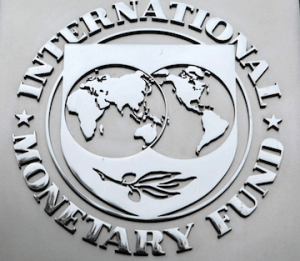Some provisions in amended Bank of Ghana Act undermine credibility of monetary policy – IMF
 The International Monetary Fund (IMF) says some provisions in the amended Bank of Ghana Act undermine the credibility of the country’s monetary policy.
The International Monetary Fund (IMF) says some provisions in the amended Bank of Ghana Act undermine the credibility of the country’s monetary policy.
After meetings with Ghana government officials including the President and Minister of Finance for the third review of the IMF’s Extended Credit Facility (ECF) to the country, the Fund issued a statement saying the meeting was successful, but added that, “Outstanding questions remain with regards to certain elements of the legislations recently passed by Parliament and discussions will continue.”
Parliament had earlier on, passed the Amended Bank of Ghana Act and the Petroleum Revenue Management Act.
The Fund said, “Following recent progress in implementing the IMF-supported programme, including the passing by Parliament of several important legislations, we had constructive discussions with the authorities during this week on a few outstanding issues. The discussions focused mainly on updating the macroeconomic projections, firming up the fiscal outlook for 2016, and ascertaining that financial pressures faced by the main State Owned Enterprises in the energy sector will not pose additional risks to the central government budget.”
Adding that, “Understandings were reached on many of these issues. Outstanding questions remain with regards to certain elements of the legislations recently passed by Parliament and discussions will continue.”
In seeking to get the Fund to clarify what it meant by “outstanding issues”, ghanabusinessnews.com sent questions by email to the IMF and received the following responses, which is, characteristically of the IMF, also unclear.
Mentioning some provisions without pointing them out, a spokesperson of the IMF said, “The amended Bank of Ghana (BoG) Act will strengthen some aspects of central bank governance. However, the provision allowing the government to borrow from the Bank of Ghana undermines the credibility of the monetary policy in the context of the inflation targeting framework. Staff noted the government commitment not to use this provision and zero financing will remain part of the ECF-supported programme conditionality. In line with the authorities’ commitment, the government has not received any new financing from BoG since the beginning of 2016”.
The spokesperson further indicated that the IMF Executive Board will consider the third review later in September.
“We were able to reach understandings with the authorities on outstanding issues. We had constructive discussions during and after the August 29-September 2, 2016 mission. In particular, we were able to clarify outstanding questions pertaining to certain elements of the legislations recently passed by Parliament. As we said, we expect that the IMF Executive Board will consider the third review later this month,” the spokesperson added.
By Emmanuel K. Dogbevi
Copyright © 2016 by Creative Imaginations Publicity
All rights reserved. This news item or any portion thereof may not be reproduced or used in any manner whatsoever without the express written permission of the publisher except for the use of brief quotations in reviews.
